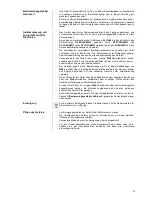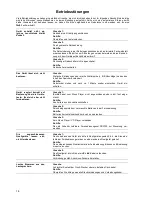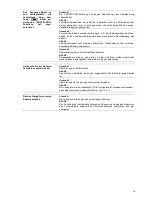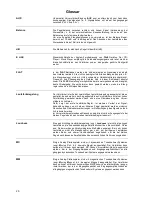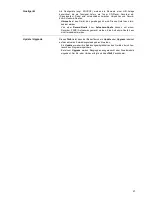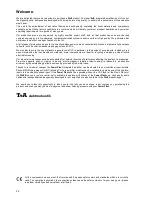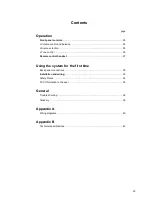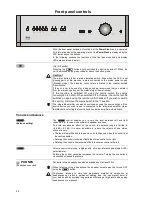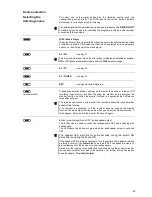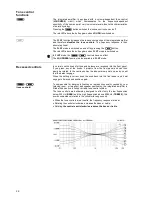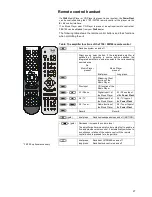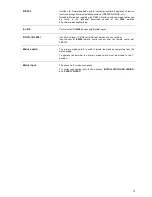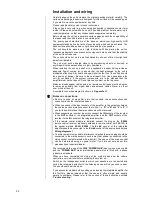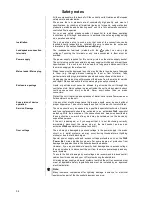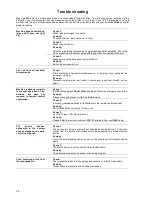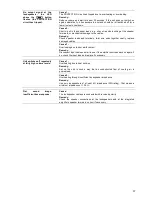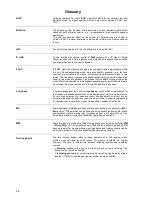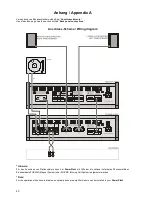
25
Source selection
Selecting the
listening source
To select one of the signal sources as the listening source, push the
corresponding button briefly. The LEDS above the source buttons indicate
which input is currently selected for listening.
The audio signals of the selected source device are present at the
RECORD OUT
sockets and can be used for recording the programme with an audio recorder
connected to these outputs.
DISC / Music Player
When the Music Player is selected as listening source the different subfunctions
of this device (Radio, CD, Streaming Client) can be selected by the appropriate
buttons on the front panel of the music player.
A1 / PH
Line input 1
This input can be turned into an input for phono turntables by installing an optional
MM or MC phono preamplifier module from the
accessory range.
A2 / TV
Line input 2
A3 / TUNER
Line input 3
REC
Line input for Audio Recorder
(monitor switch)
Pressing the monitor button enables you to monitor the quality of a tape or CD
recording (tape monitor function). Pressing the Monitor button switches the
monitor function on. When the monitor function is in operation the LED above
this button will glow.
The tape monitor function only works if the recorder connected to the amplifier
supports this function.
If no recorder is connected, or if the recorder does not support the monitor
function, the music signal will be muted when you select the monitor function. If
this happens, simply switch the monitor function off again.
Button for switching ON and OFF the loudspaker output.
This button can be used to switch the loudspeakers OFF when listening with
headphones.
The LED above the button will glow when the loudspeaker output is switched
OFF.
The speaker LED will blink for some seconds during the switch ON
delay after powering the device ON.
If the speaker LED is blinking constantly for a longer time this indicates that the
protection circuit of the
Power Plant
has turned OFF the speaker outputs to
prevent damages to the device or to your loudspeakers.
Causes for the tripping of the protection circuit can be overheat, short circuit at
the speaker output or overload of the amplifier. For further information please
see also chapter
'
Trouble Shooting
'
.
Summary of Contents for POWER PLANT MK I
Page 2: ...2...
Page 10: ...10...
Page 28: ...28...
Page 41: ...41 optional...
Page 42: ...42...
Page 44: ...elektroakustik GmbH Co KG Herford Deutschland Germany...







